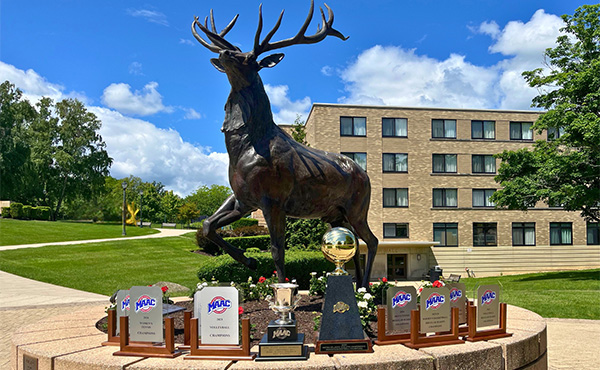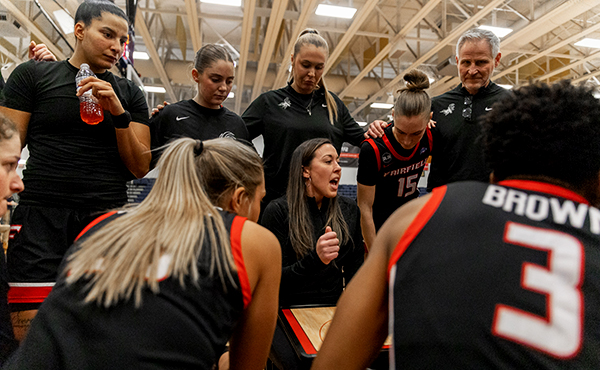A senior’s capstone project enhances patient care and improves outcomes.
Studies have shown that VR had a positive effect on participants’ social and emotional well-being.
— Caroline Smith ’21
virtual reality (VR) is a computer generated simulation that allows people to interact within a three-dimensional environment — users can walk through Disney World or scuba through a coral reef, for example. But VR is more than just for fun; increasingly, the technology is being used in healthcare — to calm a pediatric patient before surgery, for example, or assist in the treatment of phobias and addictions. When Caroline Smith ’21 did her clinical rotation on the geriatric floor of Yale-New Haven Hospital, she wondered what VR technology could do for patients suffering not only from their illnesses and decreased mobility, but also from the aggravating factors of social isolation and loneliness brought on by the pandemic. Those over 65 are especially vulnerable to feeling isolated because of health issues, the loss of friends and spouses, and the experience of living alone.
Loneliness is not just a state of mind; it can also have grave consequences for health. According to the Centers for Disease Control, socially isolated older adults have a 50 percent increase in the risk of dementia, and a 26 percent increase in risk of all-cause mortality.
On her floor, Smith noticed her patients were struggling with days of forced isolation. “They wanted to talk to you, since they couldn’t see their families or have visitors,” she recalled. Since iPads were already being used throughout the floor to keep patients in touch with loved ones, “I started doing research on VR technology and its use in healthcare,” she said. While a truly immersive VR experience requires that users wear a clunky headset that would be awkward with older, hospitalized patients, she found the technology could be used with the iPads to deliver a similar experience. “Studies have shown that VR had a positive effect on participants’ social and emotional well-being,” said Smith. Besides reducing loneliness, subjects self-reported feeling more relaxed, with less stress and depression. There were no reports of dizziness or confusion brought on after using the technology, even among those with mild cognitive impairments.
While virtual reality “can’t solve a complex mental health problem, it can impact nurses’ professional practice by helping them connect with patients and allowing them opportunities to enhance patient care and improve outcomes,” said Smith, a Haddon Heights, New Jersey native who was drawn to the profession because of the care and compassion she witnessed with a nursing staff caring for her grandparents.
Smith turned her research into her senior capstone project overseen by faculty mentors Majeda Basilio, clinical instructor, and Katherine Saracino, MSN, RN, CWOCN, CHSE, assistant dean and instructor of the practice. The result was a flyer for nurses on the floor, touting the benefits of VR and providing QR (quick response) codes so nurses can quickly and easily help patients (virtually) stroll on a beach, for example, explore the Louvre, or drive through the mountains in Switzerland.
“Nurses are always looking for ways to enhance patient care, but they have such limited time,” said Smith.






